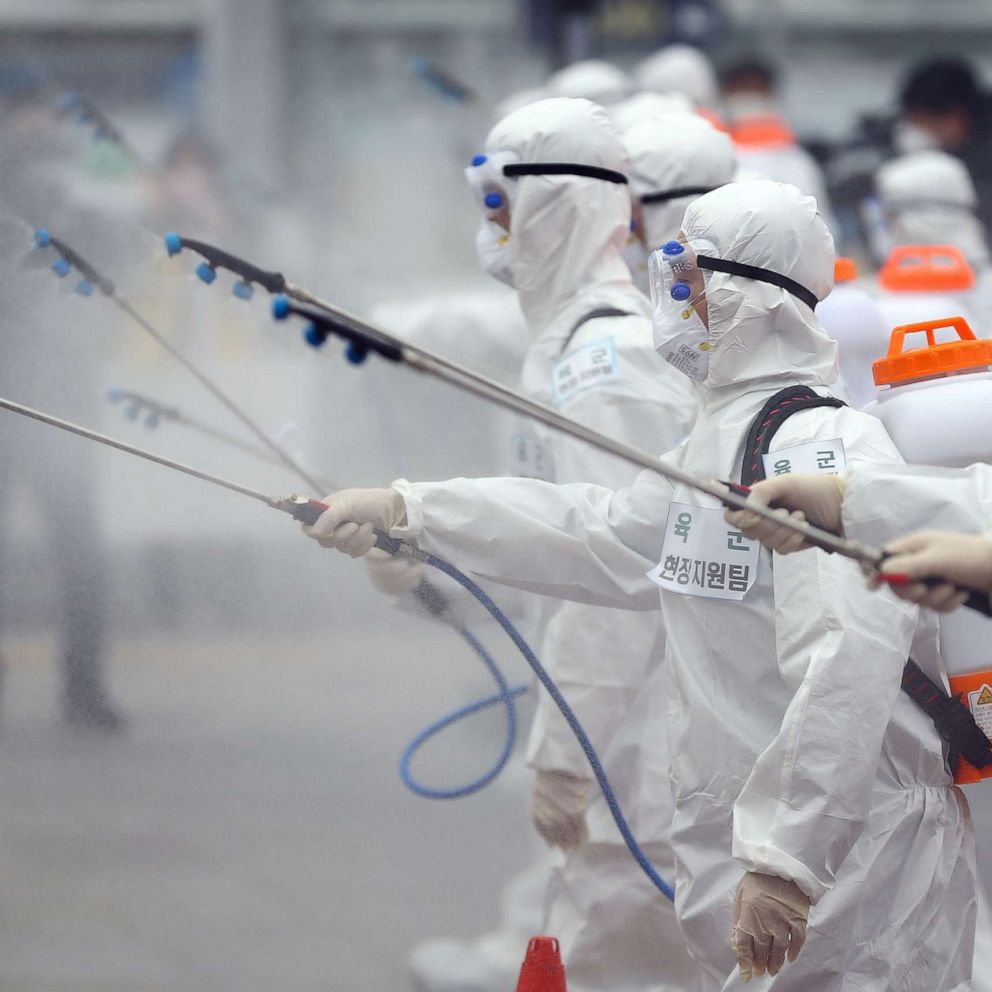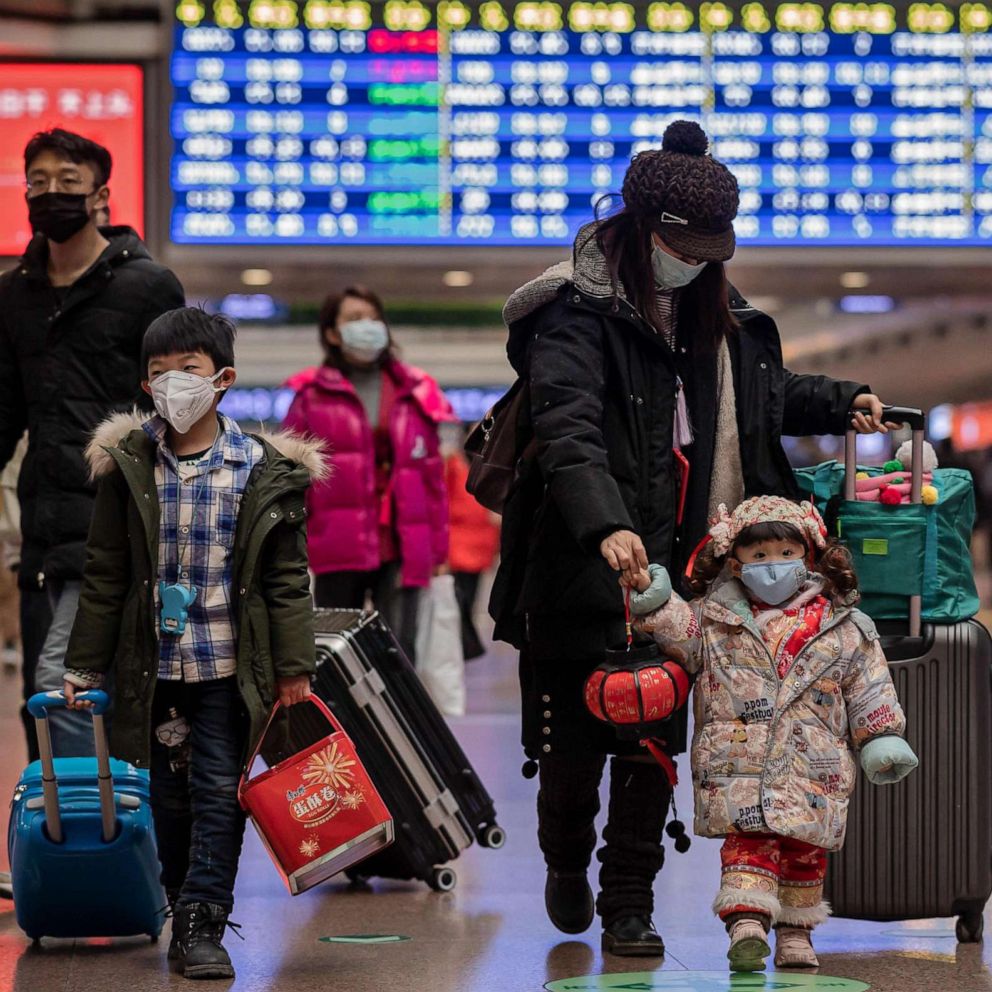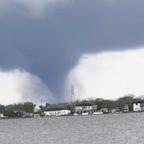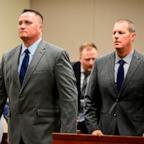Coronavirus government response updates: 'LIBERATE': Trump backs protesters defying stay-at-home orders
"I think they listen to me,” Trump said of the protesters Thursday night.
Just hours after saying it's up to the governors to implement reopenings in their states, with the federal government providing three-phase guidelines, President Donald Trump on Friday encouraged protests against stay-at-home orders in 2020 election battleground states with Democratic governors, appearing to try to take advantage of public restlessness amid the coronavirus pandemic.
The president did not mince words on Twitter this morning in support of Michiganders, Minnesotans and Virginians protesting against restrictions, saying in separate all-caps tweets: "LIBERATE MICHIGAN!; LIBERATE MINNESOTA!; LIBERATE VIRGINIA, and save your great 2nd Amendment. It is under siege!"
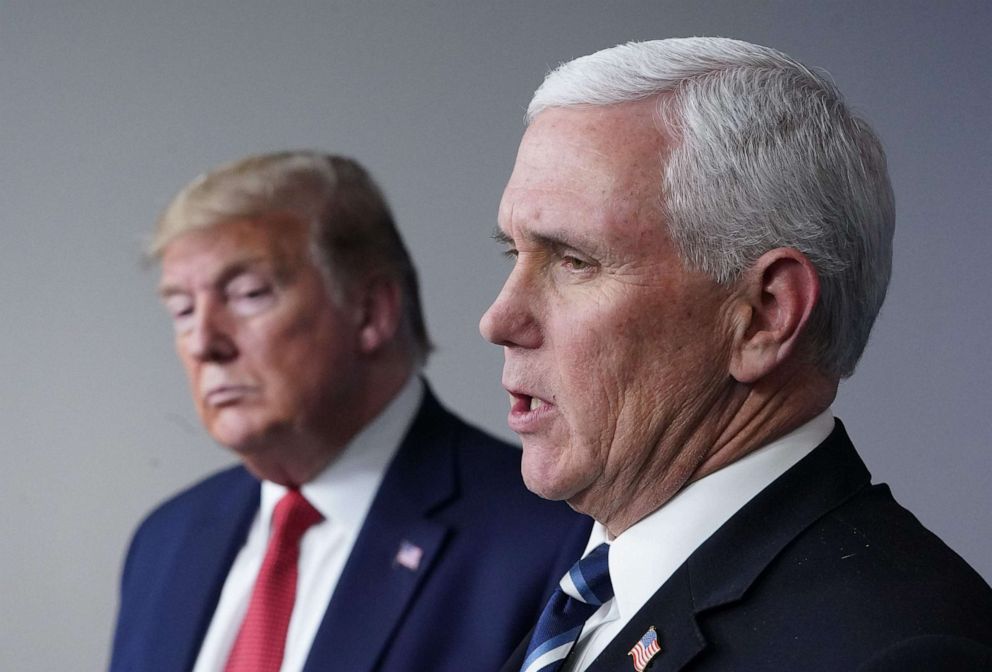
Asked by ABC News Chief White House Correspondent Jonathan Karl at Thursday's task force briefing whether he'd urge protesters in Michigan and elsewhere to listen to local authorities, Trump chose not to do so.
"I think they're listening, I think they listen to me," Trump said. "They seem to be protesters that like me and respect this opinion, and my opinion is the same as just about all of the governors. They all want to open. Nobody wants to stay shut."
Washington Gov. Jay Inslee, leading one of the hardest-hit states and a Democrat Trump has targeted, accused him of not only inciting violence but undermining his own goal of nationwide economic recovery.
"The president's statements this morning encourage illegal and dangerous acts. He is putting millions of people in danger of contracting COVID-19. His unhinged rantings and calls for people to 'liberate' states could also lead to violence. We've seen it before," Inslee said in a statement.
"He's not quoting scientists and doctors but spewing dangerous, anti-democratic rhetoric," Inslee added. "His words are likely to cause COVID-19 infections to spike in places where social distancing is working."
Earlier this week, Trump said he would not put "pressure" on governors, but critics say his resistance to calling for a nationwide stay-at-home order, or even to recommend orders on a state-by-state basis, forces governors to make the tough decisions.
While no governors have made announcements of lifting statewide restrictions effective today, as Trump last night predicted could happen, at least one Republican is pointing to as early as next week.
In Texas, Gov. Greg Abbott, a strong Trump supporter, announced Friday that state parks will re-open Monday with conditions, and that he is lifting restrictions on elective medical procedures and allowing retailers to operate under "retail to go" policies starting Wednesday, April 22.
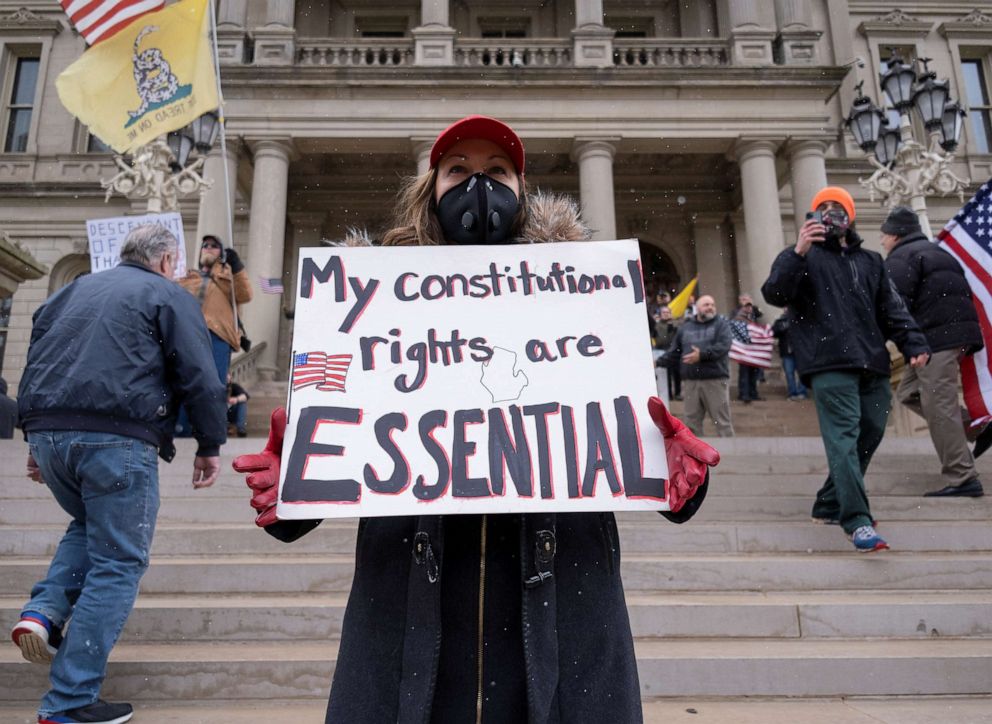
Tune into ABC at 1 p.m. ET and ABC News Live at 4 p.m. ET every weekday for special coverage of the novel coronavirus with the full ABC News team, including the latest news, context and analysis.
Here are Friday's most significant developments in Washington:
- Trump tweets support for protesters defying state stay-at-home orders
- Trump says some states could reopen as early as today after he announces ‘Opening up America again' guidelines
- Governors would be responsible for individual reopenings and critical testing, Trump says, not the federal government
- Small business fund to prevent layoffs amid pandemic is officially out of money
- Trump leads conference call with faith leaders at 4 p.m.
Here are the latest developments in the government response:
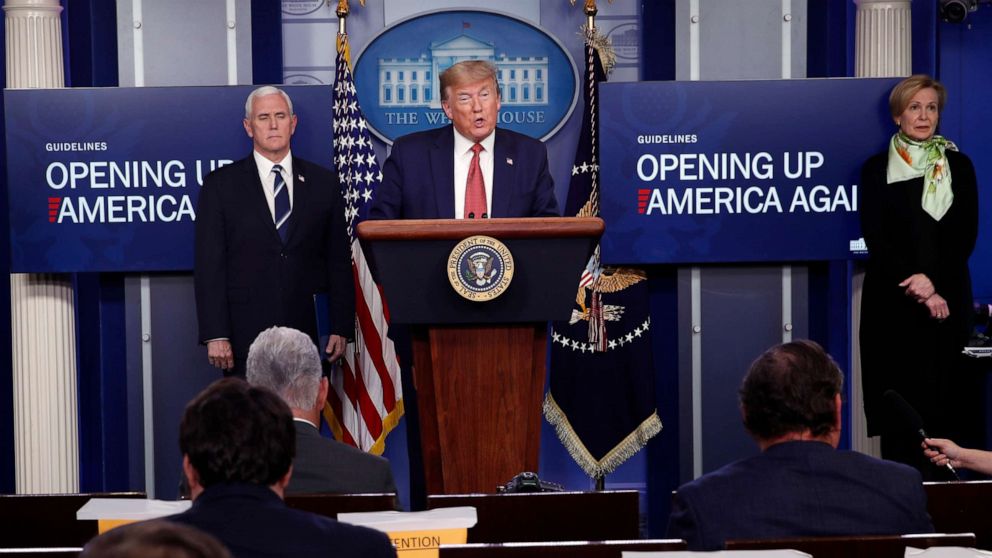
Trump holds out hope for political rallies before November
Trump told reporters that he hopes he can return to doing political rallies before the 2020 election, saying the rallies are "great for the country, great for spirit, it's great for a lot of things."
Experts, however, have said that large-scale rallies like the kind Trump hosts should be avoided until the latter part of 2021.
Trump said his campaign is made more successful by rallies. "I think the success rate is unparalleled," Trump said. "There’s nothing like it."
"I hope we are going to have rallies," Trump said. "I think they're going to be bigger than ever."
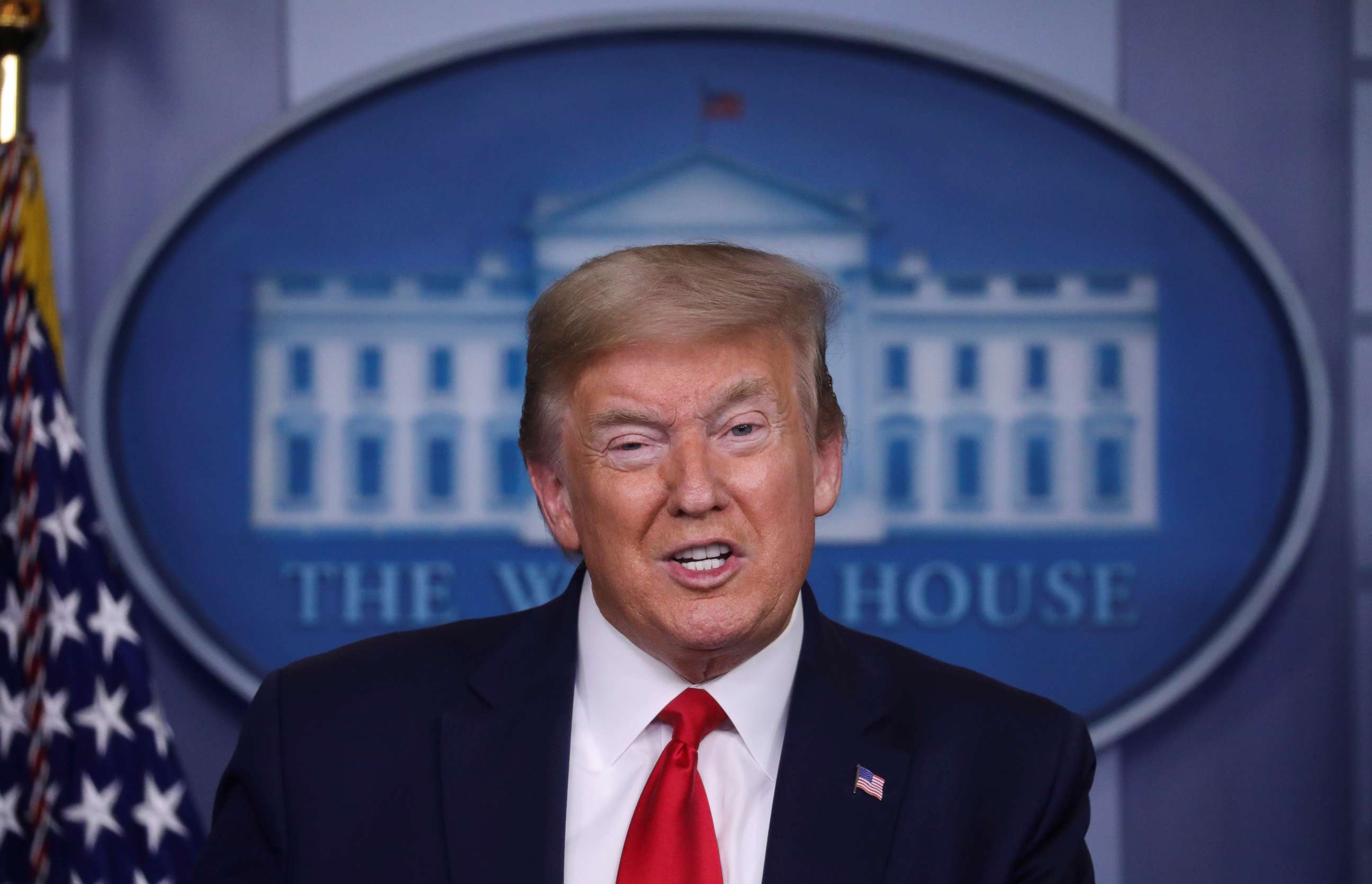
Trump touts success with small business loans despite hardly any reports of received loans
Trump touted the success of the Payroll Protection Program at Friday's briefing, telling ABC News' Rachel Scott that "it's been executed flawlessly" and "with few exceptions it's really been good." Very few small businesses have their money in hand, however, and the program ran out of money Friday, before many applications could be approved.
Trump also said House Speaker Nancy Pelosi "is away on vacation or something," and hit Democrats for holding up another round of stimulus funding, which could replenish the loan program. "I don't know why she's not coming back. The fact is she's not doing her job and there's nothing unusual about that for her," Trump said.
Asked if it was fair that larger businesses receiving more than $5 million each accounted for nearly 10% of the loans approved, Trump deflected.
During daily briefing, Trump says he thinks some state restrictions are "too tough'
The president doubled down on his calls to "Liberate" Michigan, Virginia and Minnesota at the White House coronavirus briefing on Friday evening, saying he thinks "some things are too tough."
Trump then pivoted to new firearm restrictions Democratic Virginia Gov. Ralph Northam signed into law April 10, despite being unrelated to the coronavirus crisis.
The firearm restrictions include background checks, a red flag law, limits to purchasing one gun per month, a requirement to report lost or stolen guns, and increased penalties for leaving loaded firearms in the presence of children.
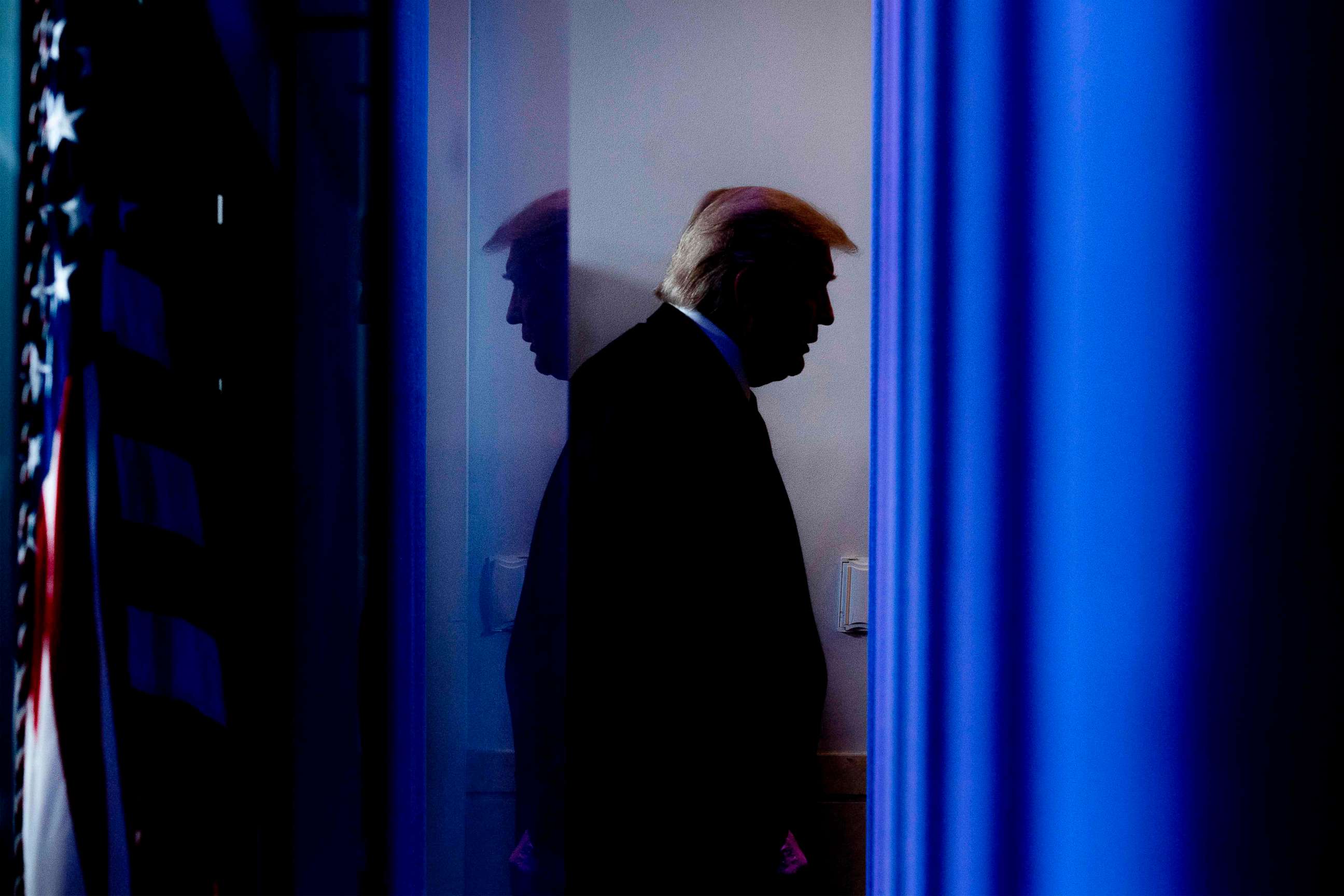
"Not only relative to this, but what they’ve done in Virginia with respect to the second amendment is just a horrible thing. They did a horrible thing," Trump said, suggesting without evidence that the restrictions were related to stay-at-home orders.
When a reporter sought to clarify, asking Trump if he thought the states he tweeted about should lift their stay-at-home orders, Trump said "no," but that "elements of what they have done is too much."
Asked whether he was concerned to see groups of people in Michigan and other states congregating to protest stay at home orders, Dr. Anthony Fauci said he understands the anger, but hopes people can see through it to the real reason it's necessary.
"Well, I'm looking at it from a public health standpoint. I certainly can understand the frustration of people, but my main role in the task force is to make recommendations to protect the health and the safety of the American people, and I would hope that people understand that that's the reason why we're doing what we're doing and hopefully we'll put an end to this," Fauci said.
Trump says some states can open today, responsible for their own testing
While political and public health leaders report the need for more robust testing and surveillance systems as COVID-19 ravishes parts of the U.S., the president is encouraging states with fewer cases to begin returning to normal sooner than May 1, saying some may begin reopening "literally" today.
"We are beating the date. I set the date of May 1st, and here we are, and I think you're going to have some nice surprises over the next few days," the president said, introducing his three-phased guidelines to "Opening up America again" at Thursday's task force briefing.
"America wants to be open, and Americans want to be open," Trump added. "As I have said for some time now, a national shutdown is not a sustainable long-term solution. To preserve the health of our citizens, we must also preserve the health and functioning of our economy."
Trump said he was leaving the decision on when and how to reopen states -- as well as COVID-19 testing responsibilities -- to individual governors, in a sharp reversal from claiming "total" authority on setting the terms earlier this week.
"If they need to remain closed, we will allow them to do that, and if they believe it is time to reopen, we will provide them the freedom and guidance to accomplish that task and very quickly," Trump said, adding the strategy was based on "hard, verifiable data."
Asked about states like Montana and Utah that already meet the "gating criteria" -- such as a decline in COVID-like symptoms and cases for 14 days and access to testing for health care workers -- the president said states that qualify could enter phase one of reopening "literally tomorrow."
"They will be able to go in literally tomorrow because they have met all of the guidelines," Trump said Thursday. "You're going back 14 days, back a month and they have -- the ones that I'm thinking about, the ones have already spoken to governors about, they have met those guidelines long ago."
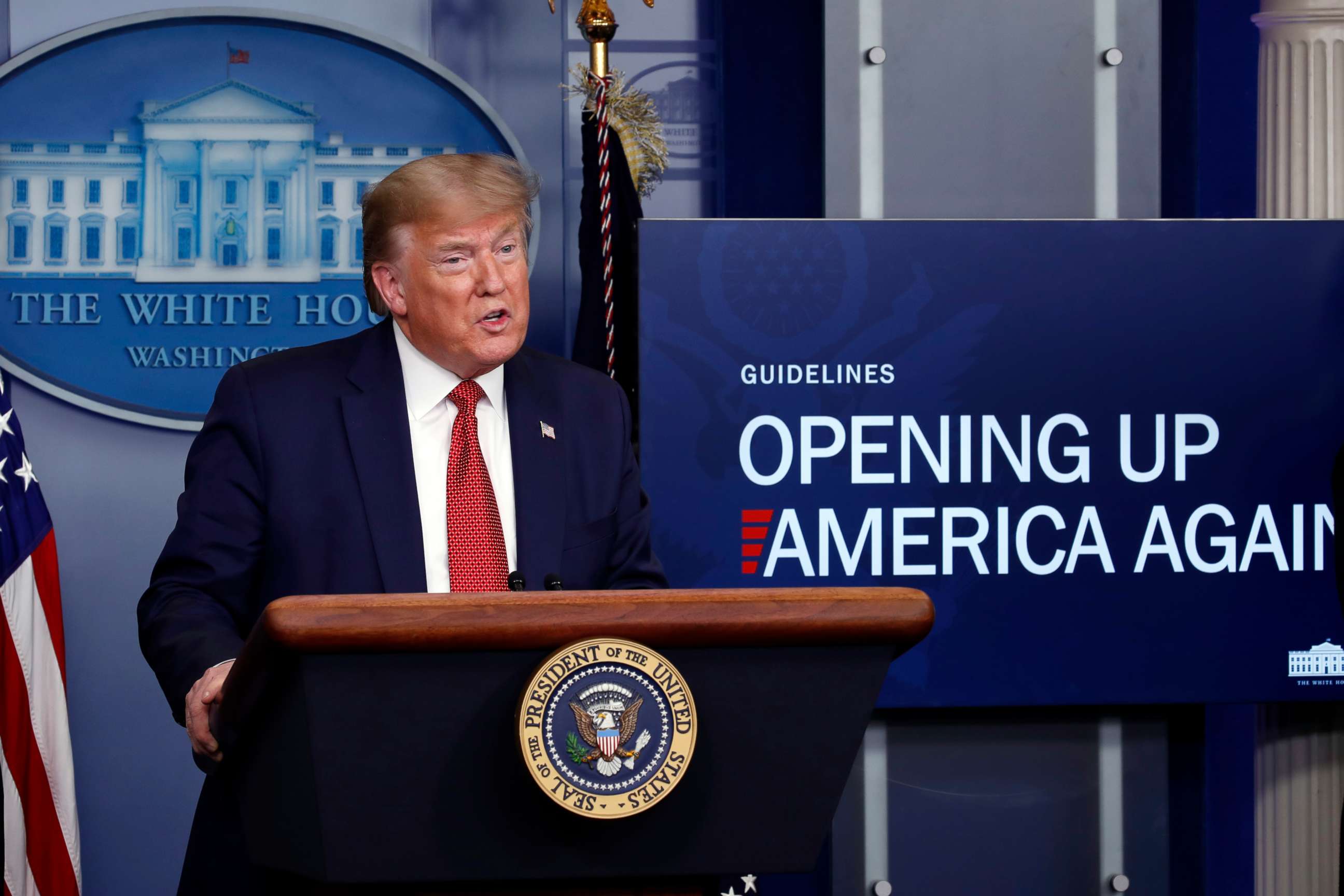
Some areas look to lift orders
After President Trump unveiled new guidelines Thursday night, state and local leaders are weighing Friday how and when to lift some of the social distancing and mitigation measures put in place amid the pandemic.
Some areas are moving towards reopening faster than others, and while no governors have made announcements of lifting statewide restrictions effective today, as the president predicted, some are pointing to as early as next week.
In Texas, Republican Gov. Greg Abbott announced Friday that he is lifting restrictions on elective medical procedures -- part of phase one in Trump's plan -- and allowing retailers to operate under "retail to go" policies starting next Wednesday, April 22.
He also said state parks will re-open on Monday, but visitors must wear face masks and cannot gather in groups larger than five.
Florida's GOP Gov. Ron DeSantis, a staunch Trump ally, who was criticized for waiting to close Florida beaches through March, didn't go as far as to set a timeline for the state, but he did say Friday morning that he would use the president's guidelines as "a baseline."
"We will obviously use that as kind of a baseline. It doesn't mean that Florida is going to go every single thing they say or not say, but that's a pretty good baseline," DeSantis said, without announcing a statewide plan to enter phase one. "Some of these businesses letting people get back to work. I think that that's something that's very, very important."
But some local officials in Florida, just two weeks into a month-long statewide stay-at-home order DeSantis resisted to call, are already agreeing to reopening beaches, citing Santis' executive order as its baseline.
In Jacksonville, Mayor Lenny Curry announced that beaches and parks throughout Duval County will reopen today at 5 p.m. "with restrictions for essential activities only." DeSantis' executive order defines essential activities as including walking, biking, hiking, fishing, running, swimming and surfing.
"This can be the beginning of the pathway back to normal life," Curry said. "Please respect and follow these limitations. Stay within the guidelines for your safety as well as for the safety of your neighbors."
In Wisconsin, Democratic Gov. Tony Evers said on Thursday that golf courses could open next week with restrictions and that for-hire lawn care could resume if it was carried out by one person.
Other states with low infection rates and Republican governors might also be looking at steps to begin gradually lifting restrictions.
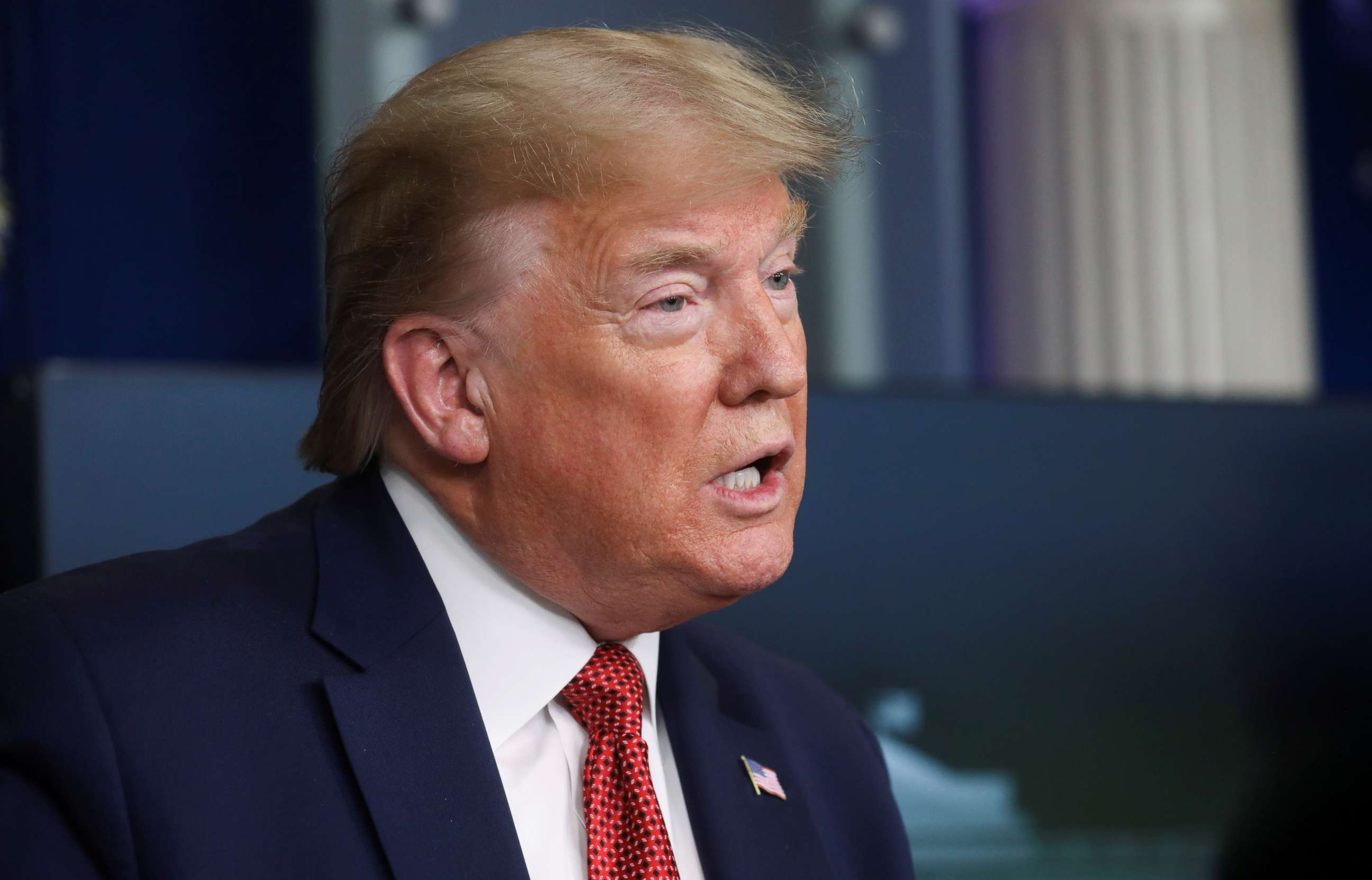
Schumer calls for testing in Trump's plan
Senate Minority Leader Chuck Schumer offered some praise of President Trump's reopening plan Friday morning but pushed for more robust testing, reiterating Democrats' $30 billion call for a national testing program.
"The plan is a little more measured than what the president said in the past, which is good but there's a key thing missing in all this," Schumer said on MSNBC. "It's called testing."
"If we don't have a strong, adequate testing regime, we're going to have real trouble," he said. "You have to know who has the illness, who's immune from the illness and who could get the illness before we can determine who can go back to work and who can't."
He called the current system "scattershot and totally inadequate for what's needed to get the country back to work."
"Each state can't come up with its own test. Many of the states are inadequate to come up with their own tests. We need a national program distributed to the local governments," he added.
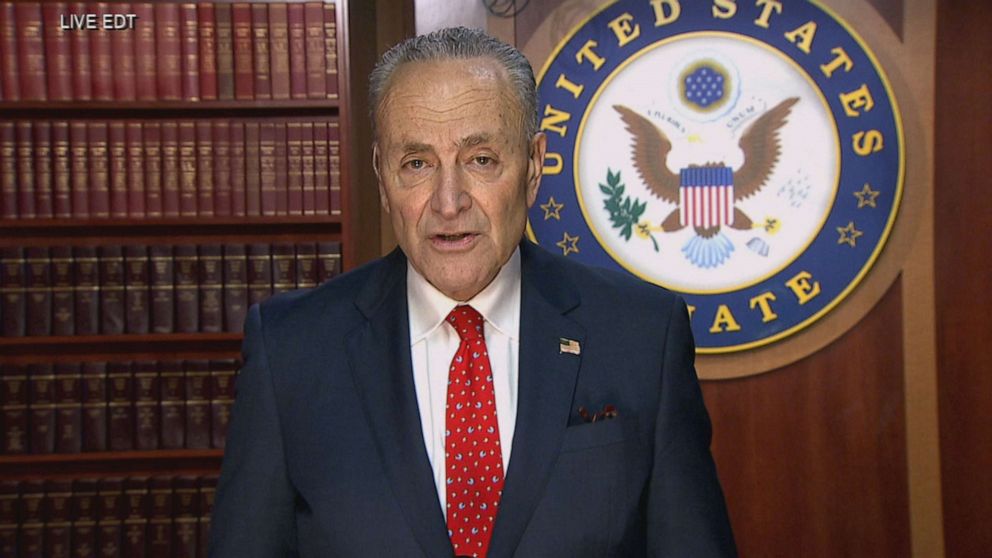
Schumer defended Democrats' proposal to add $30 billion to ramp up COVID-19 testing before agreeing to pass emergency legislation which would replenish the paycheck protection program -- intended to help fund small businesses in the pandemic -- that ran out of funds on Thursday.
"We've had constructive talks," Schumer said. "I don't see any reason why we can't come to an agreement soon."
In a tweet later Friday morning, Trump blamed Schumer and House Speaker Nancy Pelosi for not already agreeing to GOP-backed legislation to refund the program before it dried up.
Key forecasting model used by White House raises death projections
As of Friday morning, a COVID-19 forecasting model from the Institute for Health Metrics and Evaluation at the University of Washington predicted 68,841 COVID-19 deaths by Aug. 4.
Last week the model forecasted 60,415 deaths by that date.
While Friday's projection is still significantly lower than projections last month of 84,000 deaths, there's an uptick by roughly 8,500 lives as the tool is modeled after Americans' current behaviors.
White House coronavirus task force Drs. Anthony Fauci and Deborah Birx have cautioned that models can frequently change projections and that real-time data is a better indicator of projecting the virus.
What to know about coronavirus:
- How it started and how to protect yourself: Coronavirus explained
- What to do if you have symptoms: Coronavirus symptoms
- Tracking the spread in the US and Worldwide: Coronavirus map

